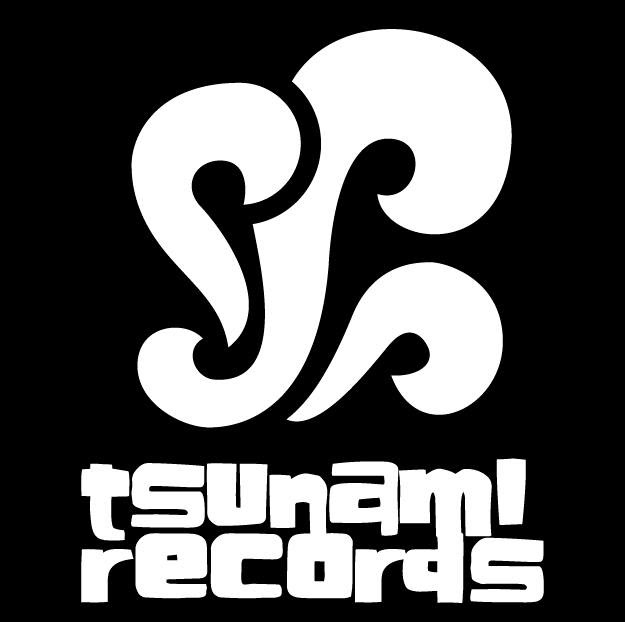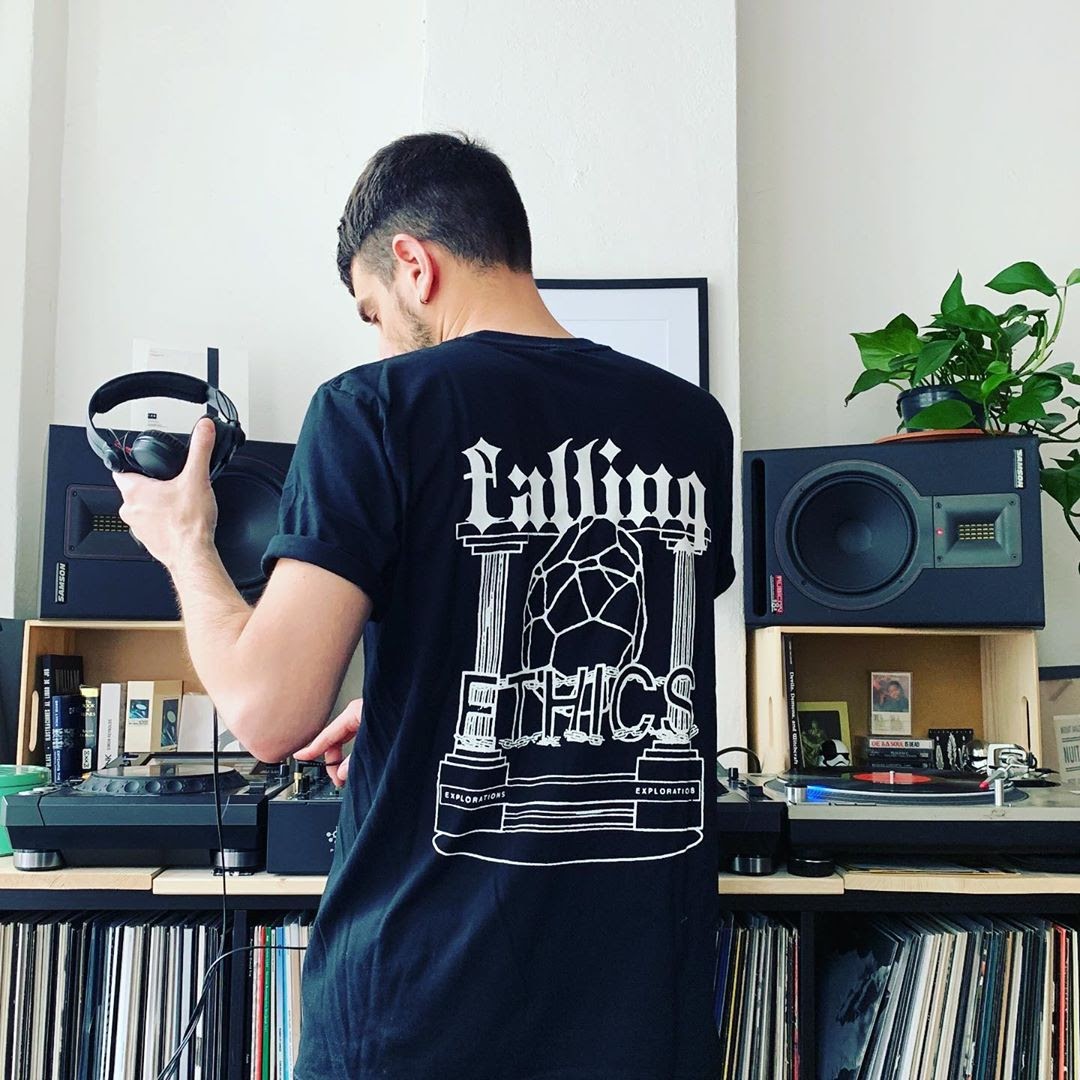The legendary spanish school of techno spearheaded by Mulero has always been highly respected in the world. Your first track was released on Christian Wunsch’s Tsunami. Could you tell us a little bit about how it happened and how you got into this elite community that – from the outside – seems tight-knit and quite closed?
We are all from the cities of the north coast of Spain, which has always have a great tradition regarding this type of techno that was previously influenced by the Birmingham sound. During the 90’s until the early 00’s this was amplified by clubs like La Real in Oviedo (and many others) that shaped a whole generation of clubers and artists. At the beginning of the 00s with the boom of the “minimal” sound, there was a lack of interest in techno. I started doing this type of Techno at that time (2005) and it was not easy. Thanks to Myspace 🙂 and people in common (we are from the same city) we contacted Christian Wünsch and we gave him a demo. That demo was released as a Various Artists on Tsunami Records: Agony Forces – It’s Only Strategy (2006). That was the beginning of the relationship.
What does it mean for you to be a part of the Polegroup family? Do you feel any responsibility and are there certain expectations from the “company” in terms of a general direction in music?
I don’t feel any pressure from the inside to be honest. That would not make any sense – If you are there, it is because what you do is something that contributes to what has been forged for years. And it’s not doing the same sound as the others, it is having your own point of view of the same thing.

Audiences keep demanding higher bpm. Is there a point when you’ll say you’re not ready to play any faster, or do you just go with the flow and think more freely about playing?
It’s funny because I started doing music at 135-138 bpm. Then suddenly 128 bpm was the standard and now I feel like people are prepared again for everything, that’s the good news. Personally I’m very happy that now I feel the scene and clubbers are very open to different kind of styles and it’s more diverse. Said that, I play faster when I have to do it – when the dance floor says it – depending of my slot or the type of the night, same thing for the opposite. You have to be always prepared for whatever.
You’ve performed live in Budapest last year, but this time you’re going to be playing a more lengthy DJ set. Which one do you identify as more – the DJ or the producer?
I couldn’t pick just one because I don’t understand one without the other. I’m always in the studio doing music and listening to new music for my sets. Also digging into old music that now I want to play again. If you want a direct reply I can say that for me DJing is more fun and open but I identify myself with both.
You’ve been living in Berlin, managing your label Falling Ethics. What do you see in vinyl besides advertising value? Are physical releases worth the endeavor?
Music is something intangible and all forms of expressing art – or fashion for example – in the end have a format that lasts over time: music on vinyl has always been the source for the disc-jockey to express their art. Now with the digital formats – that I don’t have anything against them – we’re on the risk of losing a huge important part of our history. So I think is also important to maintain one of the few traditions that we have as much as we can.

How do you imagine your future in 20 years’ time? Do you have a safety plan laid out?
Doing something related with music of course. But no, I don’t have a plan, i don’t like to look that further in the future.
Could you please tell us 3 tracks that you’ve recently added to your set?
yes, of course:
December – Encore
Inox Traxx – Sound Effects
Peder Mannerfelt – Sissel & Bass (OnScreenActor Remix)
Technokunst kérdez: P.E.A.R.L.
Mindig is nagy tisztelet övezte a techno berkekben a legendás Mulero féle Spanyol iskolát. Első kiadványod a Wunsch által igazgatott Tsunaminál jelent meg. Mesélnél nekünk egy kicsit, miként sikerült bekerülnöd ebbe a kívülről nézve nagyon zárt, elit közösségbe?
Mindannyian azokból Észak-Spanyol városokból származunk, amiknek történelmük van a Birmingham hangzással átitatott technóban. A 90-es években és a 2000-es évek elején olyan klubok adtak ennek teret, mint az oviedói La Real, ami egy egész generációnyi klubber és művész életében volt meghatározó. A 2000-es évek elején a “minimál” hangzás hirtelen jött népszerűségével alább hagyott a technóra való érdeklődés. Én 2005-ben kezdtem technót írni és nem volt egy könnyű időszak. A MySpace 🙂 -nek és néhány közös ismerősnek (akikkel ugyanabból a városból származunk) köszönhetően eljutattunk egy demót Christian Wünsch-höz. Később, 2006-ban az a szám megjelent a Tsunami Records Various Artists válogatásán (Agony Forces – It’s Only Strategy) és így kezdődött a kapcsolatunk.

Mit jelent számodra, hogy egy ilyen illusztris társaságnak, mint a Polegroup-nak vagy a tagja? Érzel bármi felelősséget ezzel kapcsolatban, illetve van-e bármilyen elvárás a “cég” részéről, hogy zeneileg mi legyen az irányvonal?
Nem érzek semmi nyomást belülről és nem is lenne értelme. Ha már bent vagy, az azért van, mert amit csinálsz, az hozzáad valamit ahhoz, amin hosszú évek óta dolgoznak. Ez nem arról szól, hogy ugyanazt a hangzást követed, mint a többiek, hanem arról, hogy mi a te, eltérő látásmódod ugyanazzal a dologgal kapcsolatban.

Egyre gyorsabb és vadabb hangzásokat követel meg a klubok közönsége. Lehet vajon az a pont, amikor azt mondod, hogy nem, ennél gyorsabban már nem vagyok hajlandó játszani, vagy szeretsz sodródni az árral és szabad stílusban gondolni a djzésre?
Vicces, hogy ezt mondod. ugyanis én 135-138 bpm-en kezdtem zenélni, aztán hirtelen a 128 bpm lett az új sztenderd. Most újra úgy érzem, hogy az emberek mindenre felkészültek, és ez jó hír. Én nagyon örülök neki, hogy a szcéna és a közönség is nagyon nyitott a különböző stílusokra és színesebb ez az egész. Szívesen játszom gyorsabban, amikor úgy hozza az este vagy a tánctér megköveteli, de előfordulhat az ellenkezője is. Minden szituációra felkészültnek kell lenned.
Legutóbb saját zenéidből álló műsorral léptél fel nálunk, most viszont egy hosszabb dj szettel készülsz. Melyik vagy igazán te, a dj vagy a producer?
Nem tudnék választani, ugyanis nem érteném az egyiket a másik nélkül. A stúdióban egyszerre töltöm az időt zenék írásával, új zenék válogatásával vagy régi zenék újra felfedezésével a dj szettjeimhez. Ha mindenképpen választanom kellene, akkor azt mondanám, hogy dj-zni szórakoztatóbb és szabadabb, de tényleg mindkettő én vagyok.

Egy ideje Berlinben élsz és onnan igazgatod a kiadódat is, a Falling Ethicset. A reklám értéken kívül milyen pluszt jelent a vinyl formátum? Megéri a befektetett rengeteg munkát számodra?
A zene fizikailag megfoghatatlan és a művészet minden kifejezési formájának – például a divatot is ideértve – szükséges egy formátum, ami kiállja az idő próbáját: a vinylre nyomott zene mindig is a dj-k eszköze volt a művészetük kifejezésére. A digitális formátumokkal (nem mintha bármi problémám lenne vele) azt kockáztatjuk, hogy elveszítjük a történelmünk egy hatalmas részét. Emiatt szerintem fontos, hogy próbáljuk, amennyire csak lehet, megtartani a kevés tradícíónk egyikét.

Hogyan képzeled el a jövődet 20 év múlva? Van safety plan az életedben?
Biztos a zenével kapcsolatban csinálok majd valamit.. de konkrét tervem az nincs, nem szeretek ennyire a jövőbe tekinteni.
Meg tudnál nevezni 3 zenét, amit legutóbb illesztettél be a dj szettedbe?
December – Encore
Inox Traxx – Sound Effects
Peder Mannerfelt – Sissel & Bass (OnScreenActor Remix)
